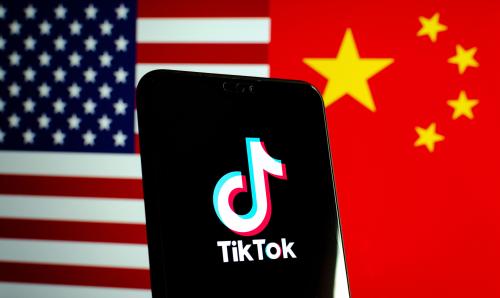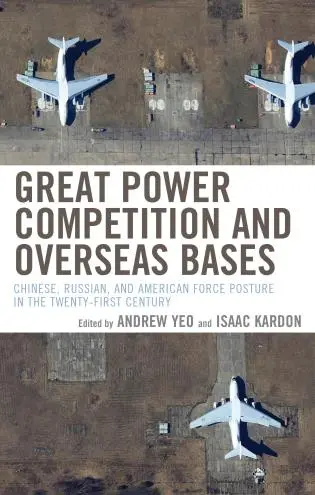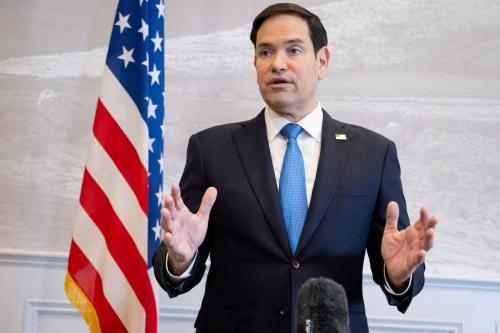Originally published as Why is the U.S. forcing a Chinese company to sell the gay dating app Grindr? in The Monkey Cage at The Washington post on April 3, 2019. Reprinted with permission.
Last week, the U.S. government revealed it was demanding the Chinese owners of Grindr, the gay dating app, give up their control of the company. The Chinese owners, Beijing Kunlun Tech, had bought 60 percent of Grindr in 2016 and completed the buyout early last year. But the U.S. government has now decided the transaction is a threat to U.S. national security. Kunlun is expected to sell Grindr at auction.
Why is Chinese ownership of a gay dating app a major national security issue? To understand this, you need to understand how the U.S. government thinks about business ownership.
The US keeps an eye on foreign investments
The decision on Grindr was issued by the Committee on Foreign Investment in the United States(CFIUS), a little-known government body that evaluates the national security implications of foreign investment in the United States. The Ford administration created CFIUS in 1975 to keep foreign investments from being politicized, at a time when Congress was worried about oil-rich nations’ investment in U.S. companies.
CFIUS review used to focus on legalities and traditional national security threats. For example, in 2012 President Barack Obama, following CFIUS recommendations, ordered a Chinese company to divest its interest in an Oregon wind farm because the company was building wind turbines next to a U.S. military site, potentially compromising U.S. security secrets.
CFIUS cracks down
In recent years, however, CFIUS has become more suspicious of foreign acquisitions, in response to public and political concerns over China. Between 2005 to 2007, less than 5 percent of transactions filed to the agency resulted in a formal investigation to see if there was a problem. Yet between 2014 and 2016, more than 42 percent of covered transactions produced an investigation. Between 1975 and 2011, CFIUS blocked only one transaction—but not counting the Grindr deal, it has helped block four deals since 2012.
The Grindr decision shows how CFIUS is adopting a more expansive view of national security. But the notion that a dating app could threaten national security is not as ludicrous as it seems. Like other social networking companies, Grindr keeps a lot of social data on its customers, including U.S. officials and government contractors who could be blackmailed or compromised. Moreover, since Grindr uses geolocation, it can track its users’ movements. Although it is impossible to know precisely why CFIUS intervened in this case—the agency is secretive and never discloses the specific justifications for its decisions—reporting suggests these data privacy issues were an important factor. Last year, CFIUS helped kill a proposed merger between MoneyGram and the Chinese firm Ant Financial, also apparently over data privacy concerns. As one international lawyer following the Grindr case recently told the Financial Times, “Data and data aggregation are now a national security issue.”
The United States is cracking down on Chinese investments. In 2016, China invested $18.7 billion in 107 U.S. tech firms. In 2018, chastened by increased CFIUS scrutiny, these numbers dropped to $2.2 billion for 80 deals. These numbers suggest China is pursuing smaller deals that are more likely to fly under the radar. CFIUS’s decision to pursue Grindr (which was acquired for the relatively small sum of $245 million) after the transaction had already happened signals its willingness to be assertive and scrutinize even small Chinese tech acquisitions.
Investment gets politicized globally
Governments around the world are starting to turn activist on inward foreign investments. The U.S. recently approved the Foreign Investment Risk Review Modernization Act of 2018 (FIRRMA), which strengthens the CFIUS process and expands review to new kinds of investment. The European Union is in the midst of introducing a new continent-wide investment screening framework, creating divisions among European countries, with France and Germany advocating a tougher line against China, and Italy, Portugal and Greece welcoming Chinese investments. The Chinese company Huawei’s ambitions to build 5G wireless networks around the world is already sparking a global diplomatic battle.
Governments’ concerns about foreign ownership are expanding from a narrow focus on military and intelligence to include issues such as data privacy, critical infrastructure, dual-use technology and strategically important industries. Western governments have already been arguing for several years over whether they should welcome or shun Chinese foreign direct investment, without reaching clear conclusions. CFIUS was supposed to stop investment screening from being politicized, but now the politics seem here to stay.
The Brookings Institution is committed to quality, independence, and impact.
We are supported by a diverse array of funders. In line with our values and policies, each Brookings publication represents the sole views of its author(s).









Commentary
Op-edIs it a threat to US security that China owns Grindr, a gay dating app?
April 8, 2019